In the intricate tapestry of avian health, the spectre of cancers and tumours casts a shadow on the vibrant world of our feathered companions.
While relatively rare, these conditions demand the unwavering attention of dedicated bird caregivers.
Understanding the nuances of cancers and tumours in birds is paramount for early detection, swift intervention, and compassionate care.
From reproductive cancers to growths affecting various organs, the journey through avian oncology is both complex and delicate.
This exploration delves into the realm of Cancers and Tumors in Birds, shedding light on the diverse challenges faced by both caretakers and their cherished avian friends.
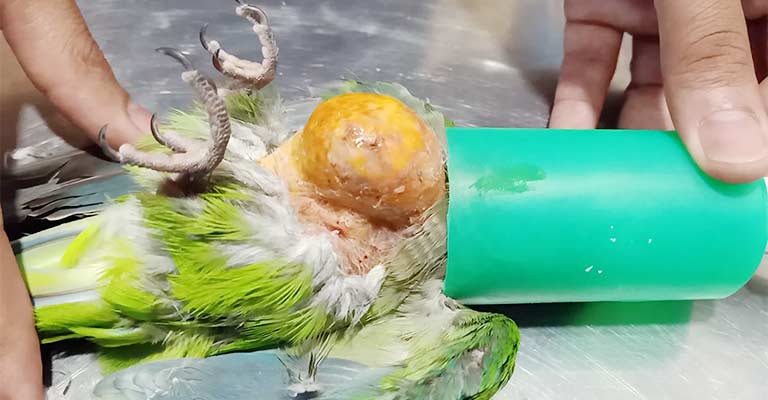
Cancers And Tumors In Birds
In the intricate tapestry of avian health, the spectre of cancers and tumours can cast shadows on our feathered companions. While relatively uncommon, these conditions demand our attention for timely intervention and compassionate care.
Here, we delve into seven types of cancers and tumours in birds, exploring their characteristics and implications for the well-being of our cherished avian friends:
Reproductive Cancers
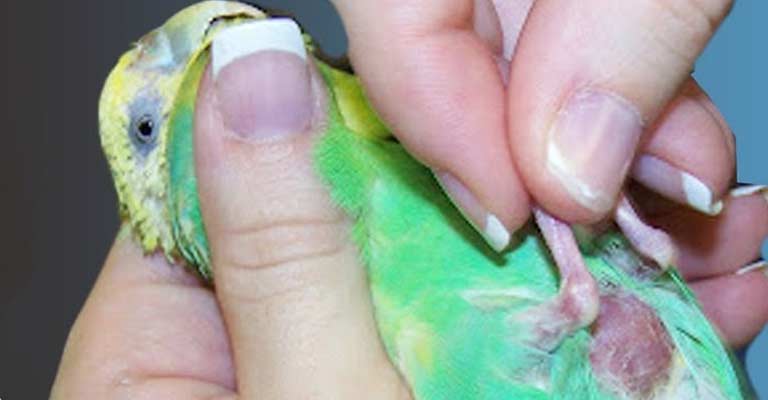
Birds, especially those prone to prolific egg-laying, may develop reproductive cancers affecting the ovaries or testes. These tumours can interfere with reproductive function and may necessitate surgical intervention for removal.
Lymphomas
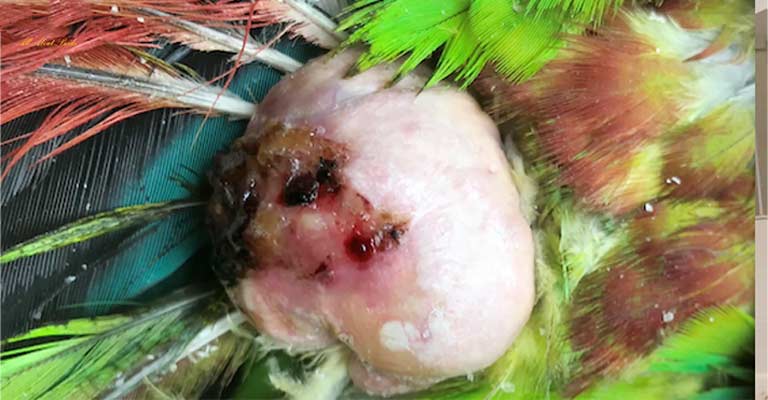
Lymphomas, cancers of the lymphatic system, can occur in birds. They often manifest as internal masses, impacting organs like the liver or spleen. Treatment may involve chemotherapy, though the prognosis varies.
Skin Tumors
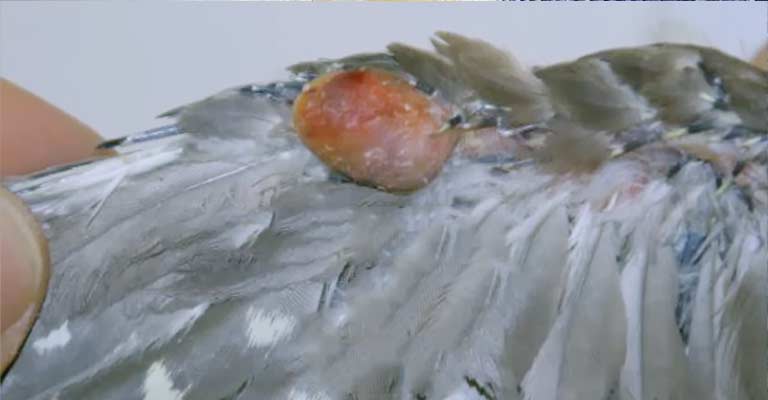
Skin tumours in birds can be diverse, ranging from benign growths to malignant melanomas. Surgical removal is often the primary approach, with histopathological analysis guiding treatment decisions.
Hepatic Tumors
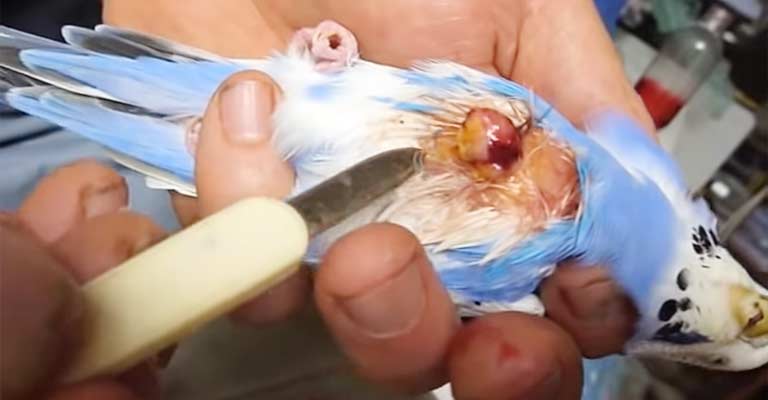
Tumours affecting the liver can pose significant health challenges for birds. Hepatic tumours may be primary or metastatic, requiring careful diagnostic evaluation and potential surgical or medical interventions.
Ovarian Tumors
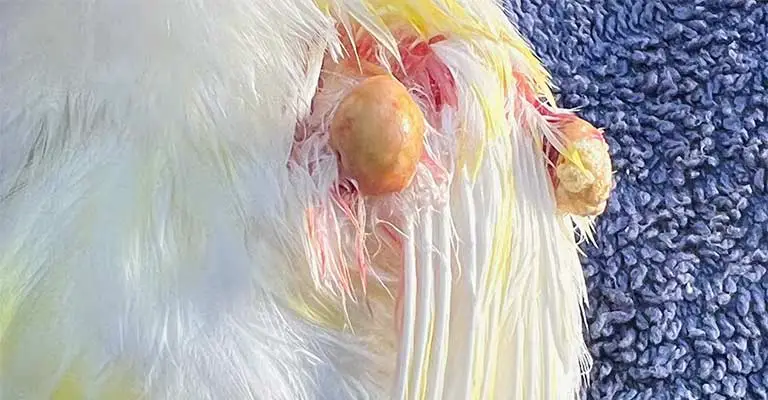
Female birds may develop ovarian tumours, impacting reproductive health. Surgical removal is often considered, with a focus on preserving essential reproductive structures when possible.
Testicular Tumors
Testicular tumours, though less common, can occur in male birds. Surgical removal is a common approach, aiming to address the tumor and mitigate potential impacts on reproductive function.
Bone Tumors
Birds may develop bone tumours, affecting skeletal structures. Diagnosis often involves imaging studies, and treatment may include surgical intervention or palliative care, depending on the tumour’s nature.
What Are Some Symptoms Of Cancers And Tumors In Birds?
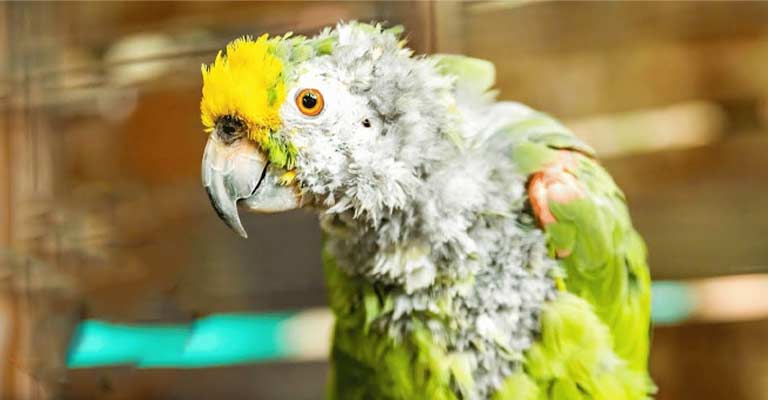
While avian cancers and tumours are relatively rare, their emergence demands vigilant observation from bird caregivers. Recognizing the subtle signs indicative of these conditions is crucial for timely veterinary intervention.
Here, we delve into some common symptoms associated with cancers and tumours in birds:
Abnormal Swellings or Lumps
One of the primary signs of tumours in birds is the presence of abnormal swellings or lumps on the body. These may be palpable during physical examination and are indicative of underlying growths that require veterinary assessment.
Changes in Behavior
Birds experiencing discomfort from tumours or cancers may exhibit alterations in behaviour. This can include increased irritability, lethargy, or changes in vocalization patterns. Such behavioural shifts signal potential health concerns that should be promptly addressed.
Weight Loss or Changes in Appetite
Cancers and tumours can impact a bird’s nutritional intake, leading to weight loss or changes in appetite. Significant fluctuations in body weight may signify the presence of underlying health issues, prompting a thorough veterinary examination.
Difficulty Breathing or Respiratory Distress
Tumours affecting the respiratory system can cause difficulty breathing or respiratory distress in birds. Laboured breathing, wheezing, or changes in respiratory rate warrant immediate veterinary attention to assess and address the respiratory concerns.
Changes in Droppings
Cancers affecting internal organs may influence the composition of a bird’s droppings. Changes in colour, consistency, or the presence of blood may indicate gastrointestinal or urinary tract involvement, necessitating diagnostic evaluation.
Altered Feather Quality
The development of tumours can affect overall health, leading to changes in feather quality. Birds may exhibit unkempt or discoloured plumage, highlighting the need for a comprehensive veterinary examination to identify and address potential underlying issues.
Neurological Symptoms
Tumors in the nervous system can manifest as neurological symptoms, including seizures, imbalance, or changes in coordination. Any observable abnormalities in a bird’s neurological function should be promptly investigated by a qualified avian veterinarian.
What Are The Treatments For Cancers And Tumors In Birds?
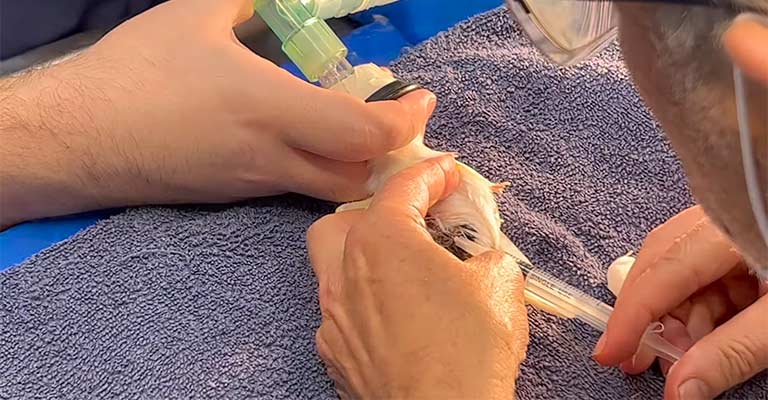
Cancers and tumours in birds, though relatively uncommon, necessitate careful consideration and swift action from dedicated caregivers.
Here, we explore the treatments tailored to address cancers and tumours in birds:
Surgical Removal
One of the primary treatment options for localized tumours is surgical removal. Skilled avian veterinarians can excise the tumour, and this approach is particularly effective for accessible growths that haven’t metastasized. Early detection and intervention enhance the likelihood of a successful outcome.
Chemotherapy
In cases where cancers have spread or cannot be surgically removed, chemotherapy may be recommended.
While this treatment may not fully cure the cancer, it can help manage the disease, alleviate symptoms, and improve the bird’s quality of life. Close monitoring and adjustments to the treatment plan are integral to its success.
Radiation Therapy
Radiation therapy is another modality employed for localized tumours or cancers that cannot be surgically removed. It involves targeted doses of radiation to shrink or eliminate abnormal cells. This treatment requires specialized equipment and careful consideration of potential side effects.
Palliative Care
In situations where curative treatments may not be feasible, palliative care focuses on enhancing the bird’s comfort and quality of life.
Pain management, nutritional support, and environmental adjustments are integral components of palliative care, offering compassionate support for birds facing advanced cancers.
Immunotherapy
Immunotherapy harnesses the bird’s immune system to target and combat cancer cells. While still an emerging field in avian medicine, research suggests that stimulating the immune response can contribute to controlling cancer growth. However, its application in birds may vary, and consultation with an avian oncologist is essential.
Hormonal Therapy
For certain hormone-related tumours, hormonal therapy may be considered. This treatment aims to regulate hormone production or block hormonal receptors, impeding the growth of hormone-sensitive cancers. Veterinary evaluation is crucial to determine the appropriateness of hormonal therapy.
Supportive and Nutritional Care
Regardless of the chosen treatment, providing comprehensive supportive care is essential. Adequate nutrition, environmental adjustments, and attention to the bird’s overall well-being contribute to a holistic approach to managing cancers and tumours.
Close collaboration with an avian veterinarian ensures an integrated and personalized care plan.
By being proactive and informed, bird caregivers can navigate the challenges of cancers and tumours, working hand in hand with veterinary professionals to optimize the health and comfort of their avian companions.
FAQs
Can tumours in birds be surgically removed?
Yes, localized tumours can often be surgically removed by skilled avian veterinarians. Early detection enhances the success of this intervention, providing a potential cure for accessible growths.
Are there non-surgical treatments for cancers in birds?
Yes, non-surgical treatments include chemotherapy, radiation therapy, immunotherapy, hormonal therapy, and palliative care. The choice depends on the type, location, and extent of the cancer.
How can bird caregivers support a bird with cancer?
Supportive care involves providing optimal nutrition, managing pain, ensuring a comfortable environment, and offering emotional support. Close collaboration with an avian veterinarian is crucial for a comprehensive care plan.
Is there a cure for cancer in birds?
The possibility of a cure depends on factors like the type of cancer, stage, and response to treatment. Early detection and prompt intervention enhance the chances of successful outcomes.
Can tumours in birds be prevented?
While not all tumours can be prevented, promoting a healthy lifestyle, providing a balanced diet, and minimizing environmental stressors can contribute to overall well-being, potentially reducing the risk of certain tumours.
Conclusion
The journey through cancers and tumours in birds is marked by challenges, resilience, and unwavering dedication from caregivers.
As custodians of Avian’s well-being, we navigate this intricate landscape with a commitment to early detection, tailored interventions, and compassionate care.
By understanding the diverse treatments available and fostering a proactive approach, bird enthusiasts contribute to the longevity and vibrancy of their feathered companions.
The bond between caregiver and bird is strengthened through shared experiences, emphasizing the importance of informed decision-making and ongoing collaboration with avian veterinarians.
In the face of these health challenges, the commitment to providing the best possible care ensures that our avian friends continue to grace our lives with their unique presence and enduring spirit.